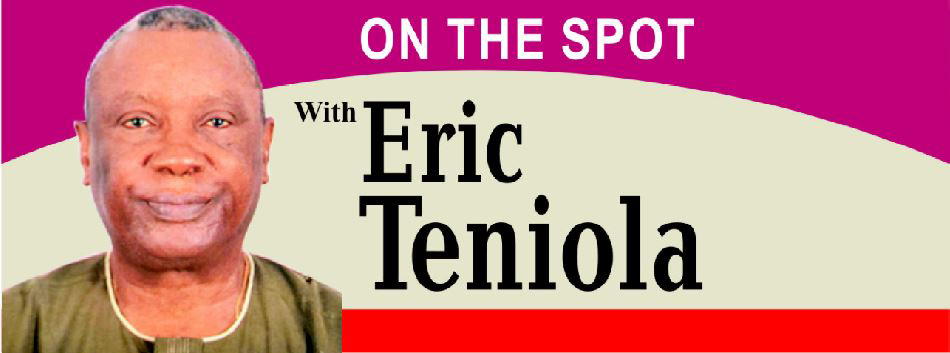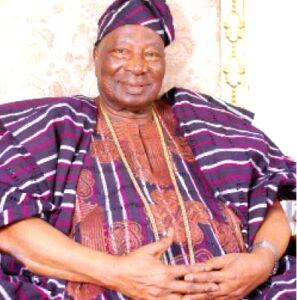

By Eric Teniola
Last week’s instalment focused on the political sagacity of General Ibrahim Babangida in approving the enactment of the VAT Decree
THE reports of Professor Edozien and that of Dr. Ugoh were submitted to General Babangida. Afterwards General Babangida then set up the implementation committee on VAT headed by Chief Emmanuel Itoya Ijewere (75), a chartered accountant.
Chief Emmanuel Itoya Ijewere started his accounting career in 1965 with Coopers and Lybrand. He is a past president of the Institute of Chartered Accountants of Nigeria, also past president of the Institute of Directors and past president of the Nigerian Red Cross Society.
Upon being elected in 1999, President Olusegun Obasanjo, GCFR, invited Professor Adedotun Oluwole Phillips to submit a comprehensive paper on taxation in Nigeria for implementation.
Professor Phillips was senior lecturer n economics at the University of Ibadan, appointed professor of economics, University of Ibadan, 1978; head, Department of Economics of the university, 1979-1981; dean, Faculty of Social Sciences, 1981-1983; president, Nigerian Economic Society,1981-1982; appointed director, National Institute for Policy and Strategic Studies, Kuru, Nigeria, 1983-1984; chairman, Federal Civil Service Review Panel, 1985-1987, former chairman, Nigerian Industrial Development Bank, NIDB, director-general, Nigerian Institute for Social and Economic Research, NISER, Ibadan, 1986; former member, National Economic Advisory Council.
President Obasanjo also appointed another group headed by Seyi Bickerston on taxation in Nigeria. President Obasanjo then appointed a taxation expert, Mrs. Ifueko Omoigui-Okauru as chairman of the Federal Inland Revenue Service, FIRS. President Obasanjo effected certain reforms in the taxation policy in the country.
The main objective of the reform programme was to “operate a transparent and efficient tax system that optimises tax revenue collection and voluntary compliance”. The reform programme was charged with the responsibilities of diversifying the revenue base from petroleum related taxes; treat taxpayers in a fair and responsible manner; promote investment in a diversified economic base in order to promote further economic growth; simplify procedures and policies so that compliance is enhanced; reorganise the tax administration to increase effective compliances, reduce the compliance cost to taxpayers and make it more supportive of tax payer services; promote integrity by both tax administrators and taxpayers and provide reasonable allocation of responsibilities for fiscal matters between the partners in the federal system.
Other objectives of the reform programme included a shift in relative emphasis from income to consumption taxes i.e. indirect tax; a revised comprehensive personal income tax regime; modernised accounting and derivation for taxable profit for companies income tax; restricting the number of tax instruments available to sub-national governments, as well as how these taxes are administered while ensuring that such governments have access to reasonable own source revenue ; modernising the FIRS and/or the Joint Tax Board so that it is equipped to administer the reforms in an effective manner and obtain financial and administrative autonomy for FIRS to make it more effective and efficient.
President Obasanjo then submitted a bill for the establishment of the Federal Inland Revenue Service, FIRS, to the National Assembly. The bill was approved in the Senate on February 20, 2007, presided over by Senator Ken Ugwu Nnamani (72) from Enugu, then of the Peoples Democratic Party, PDP.
The Bill was also passed in the House of Representatives on February 21 presided over by Alhaji Aminu Masari (71) who hails from Masari village of Kafur local government area, Katsina State, and of the PDP. Alhaji Aminu Masar is today the governor of Katsina State.
The two houses jointly passed the bill and it was signed into law on April 16, 2007. It was jointly signed into law by President Olusegun Obasanjo, GCFR, and the Clerk of the National Assembly, Alhaji Ibrahim Nasiru Arab.
Highlights of the bill states that this Act may be cited as the Federal Inland Revenue Service (Establishment) Act, 2007. A192. Federal Inland Revenue Service (Establishment) Act 2007 No. 13, Schedules first schedule legislation administered by the service. 1. Companies Income Tax Act Cap. 60 LFN, 1990. 2. Petroleum Profits Tax Act Cap. 354 LFN, 1990. 3. Personal Income Tax Act No. 104, 1993. 4. Capital Gains Tax Act Cap. 42 LFN, 1990. 5. Value Added Tax Act 1993 No. 102, 1993. 6. Stamp Duty Act Cap. 411 LFN, 1990. 7. Taxes and Levies (Approved List for Collection) Act 1998 No.2, 1998, 8. All regulations, proclamation, government notices or rules issued in terms of these legislation.
9. Any other law for the assessment, collection and accounting of revenue accruable to the Government of the Federation as may be made by the National Assembly from time to time or regulation incidental to those laws, conferring any power, duty and obligation on the Service. 10. Enactment or Laws imposing Taxes and Levies within the Federal Capital Territory.
Enactment or Laws imposing collection of taxes, fees and levies collected by other government agencies and companies including signature bonus, pipeline fees, penalty for gas flared, depot levies and licences, fees for Oil Exploration License, OEL, Oil Mining Licence, OML, Oil Production Licence, OPL, royalties, rents (productive and non-productive), fees for licenses to operate drilling rigs.
The post The new VAT combat is a protest (3) appeared first on Vanguard News.






0 Commentaires